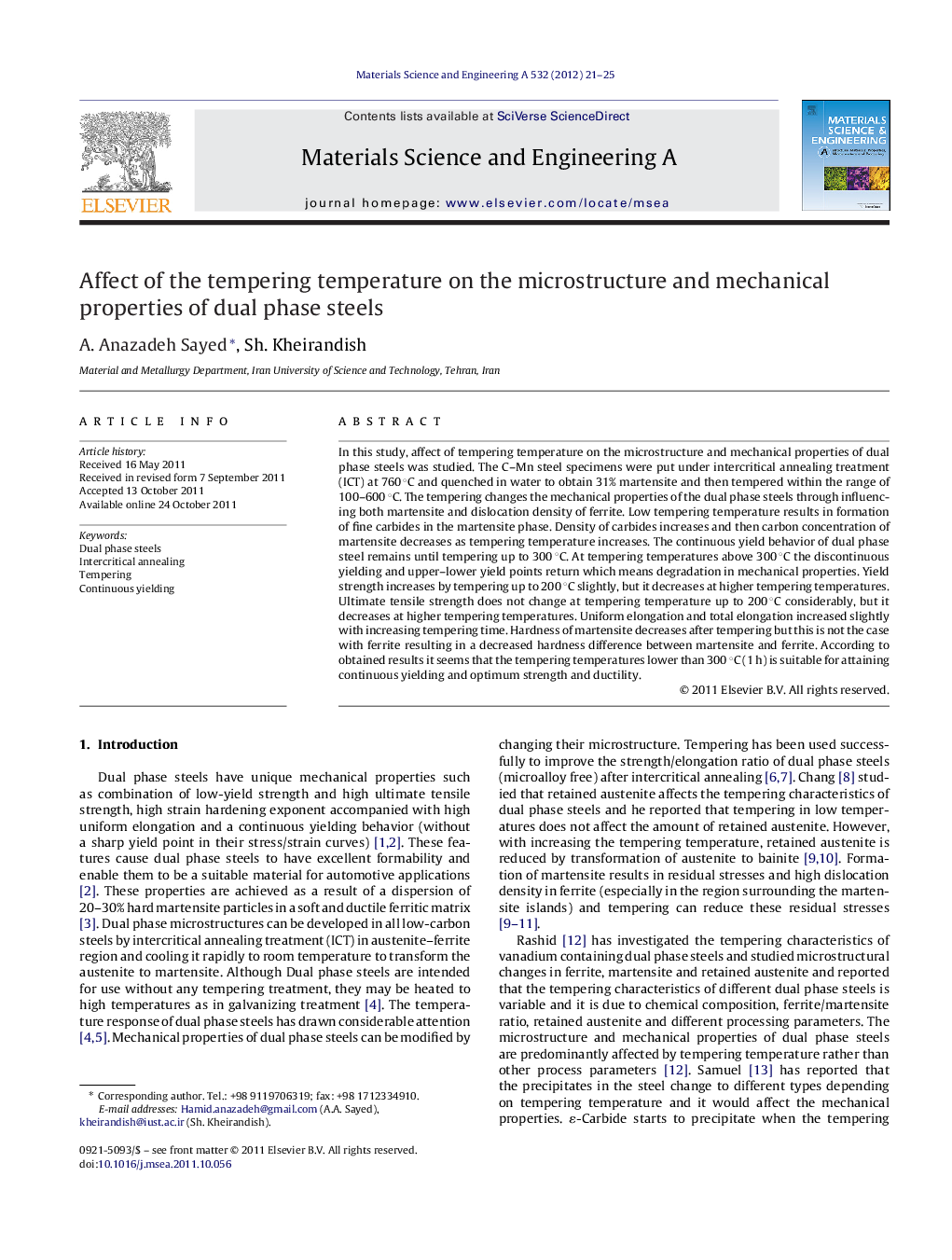| کد مقاله | کد نشریه | سال انتشار | مقاله انگلیسی | نسخه تمام متن |
|---|---|---|---|---|
| 1577831 | 1514811 | 2012 | 5 صفحه PDF | دانلود رایگان |

In this study, affect of tempering temperature on the microstructure and mechanical properties of dual phase steels was studied. The C–Mn steel specimens were put under intercritical annealing treatment (ICT) at 760 °C and quenched in water to obtain 31% martensite and then tempered within the range of 100–600 °C. The tempering changes the mechanical properties of the dual phase steels through influencing both martensite and dislocation density of ferrite. Low tempering temperature results in formation of fine carbides in the martensite phase. Density of carbides increases and then carbon concentration of martensite decreases as tempering temperature increases. The continuous yield behavior of dual phase steel remains until tempering up to 300 °C. At tempering temperatures above 300 °C the discontinuous yielding and upper–lower yield points return which means degradation in mechanical properties. Yield strength increases by tempering up to 200 °C slightly, but it decreases at higher tempering temperatures. Ultimate tensile strength does not change at tempering temperature up to 200 °C considerably, but it decreases at higher tempering temperatures. Uniform elongation and total elongation increased slightly with increasing tempering time. Hardness of martensite decreases after tempering but this is not the case with ferrite resulting in a decreased hardness difference between martensite and ferrite. According to obtained results it seems that the tempering temperatures lower than 300 °C (1 h) is suitable for attaining continuous yielding and optimum strength and ductility.
► Tempering of intercritical annealed dual phase steels.
► Tempering results in growing fine carbides in the martensite phase.
► Discontinuous yielding and upper–lower yield points return.
► Tempering on 300 °C is optimum for attaining continuous yielding and strength.
Journal: Materials Science and Engineering: A - Volume 532, 15 January 2012, Pages 21–25